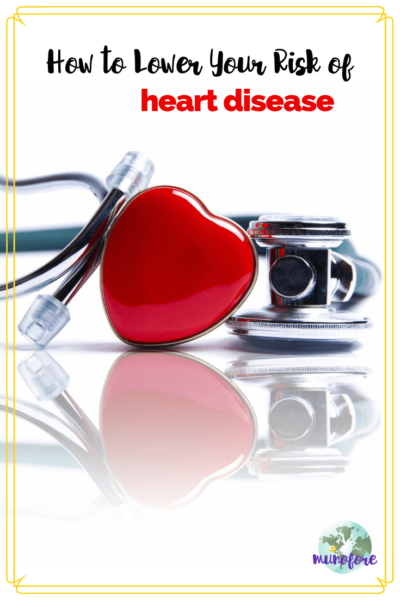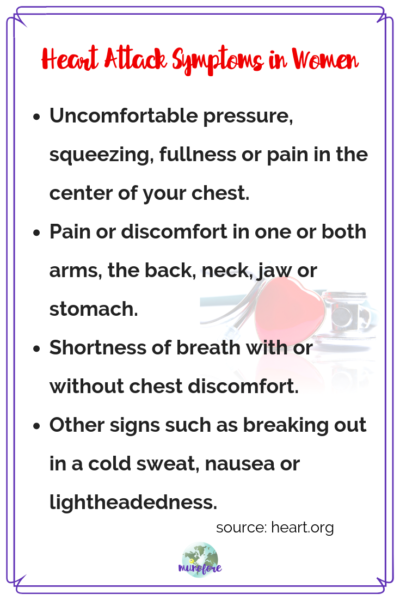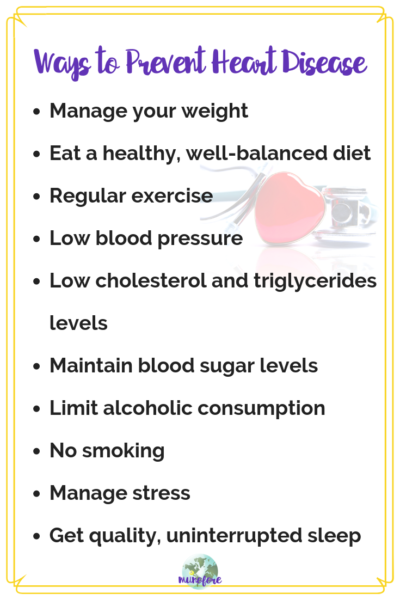While it’s true that heart disease is the #1 cause of death in the US for both women and men, it’s also true that you have some control over certain risk factors that lead up to heart disease, and can even reverse some of the symptoms if they’re caught early on.

Heart Disease is considered a lifestyle disease, which means its main causes are lifestyle choices such as diet and lack of exercise. This is good news as it means that we have an adequate amount of control over it.
The important thing is to learn all you can about these factors and how they can be regulated so you can enjoy a healthy, strong disease-free heart.
What is heart disease?
It’s usually a broad term which refers to several conditions relating to an unhealthy heart, which may include:
- Heart attack
- Stroke
- Heart failure
- Hardening of the arteries
- Arrhythmia
- Heart valve problems
It is also referred to as Coronary Artery Disease or CAD.
The good news is that there are things you can do to help avoid any type of heart disease. Generally, heart disease doesn’t happen overnight. It develops over the years, and its symptoms may be spurred on or slowed down depending on the lifestyle choices you make starting from your early adulthood years.
Know the Risk Factors of Heart Disease
Risk factors you can’t change:
Gender: Women have risk factors for Coronary Artery Disease that men don't have. Heart attacks present differently in women than in men making it harder to diagnose.
Race/ethnicity: African Americans and those from Southern Asia tend to be at higher risk of heart disease. Latinos tend to have many risk factors for heart disease yet statistically have fewer heart attacks.
Family history: If members of your immediate family have heart disease, your risk for developing is greater as well.
Age: As you age your risk increases. Women tend to be older when they have their first heart attack and they tend to be more deadly.

Risk factors within your control:
Manage your weight: We all know obesity is a key risk factor in heart disease, or we should know.
Regular exercise: Get your heart pumping with 30 minutes of exercise most days of the week. A brisk evening walk can do wonders for your heart and to help you maintain your weight.
Eat a healthy, well-balanced diet: What is a healthy well balanced diet seems to change daily and for each person. Some swear by keto, some prefer a Mediterranean Diet, etc. Consult your doctor and do your own research on what is best for you.
Regular health screenings for blood pressure, cholesterol, triglycerides, and blood sugar levels: If you are at risk for heart disease because of your age, ethnicity or family history you do not want to skip regular health screenings for these key factors.
Moderate alcoholic consumption: Excess alcohol consumption can increase blood pressure and triglyceride levels. The American Heart Association recommends that men should not consume more than 1 or 2 drinks and women 1 drink per day.
No smoking: The jury is still out on vaping's safety in regards to heart disease, but some early studies are indicating it is more dangerous than the manufacturers would have you believe.
Manage stress: Emotional stress takes a huge physical toll on your body, particularly the heart. Find a way to manage stress that works for you be it meditation and yoga or a round of golf.
Get quality, uninterrupted sleep: When we are sleep deprived everything is harder: eating right, maintaining weight, reducing stress level, etc. And the heart feels the effects dramatically. Turn off the TV, put down the phone and get your ZZZZs!

Whether you’re working on maintaining a healthy heart or working at reducing certain risk factors, studies have proven that making healthy lifestyle choices can fend off nearly 80% of heart diseases, 75% of sudden cardiac deaths and 50% of strokes. It’s never too early to start making those smart choices and start investing in a healthier, brighter, longer life.
















